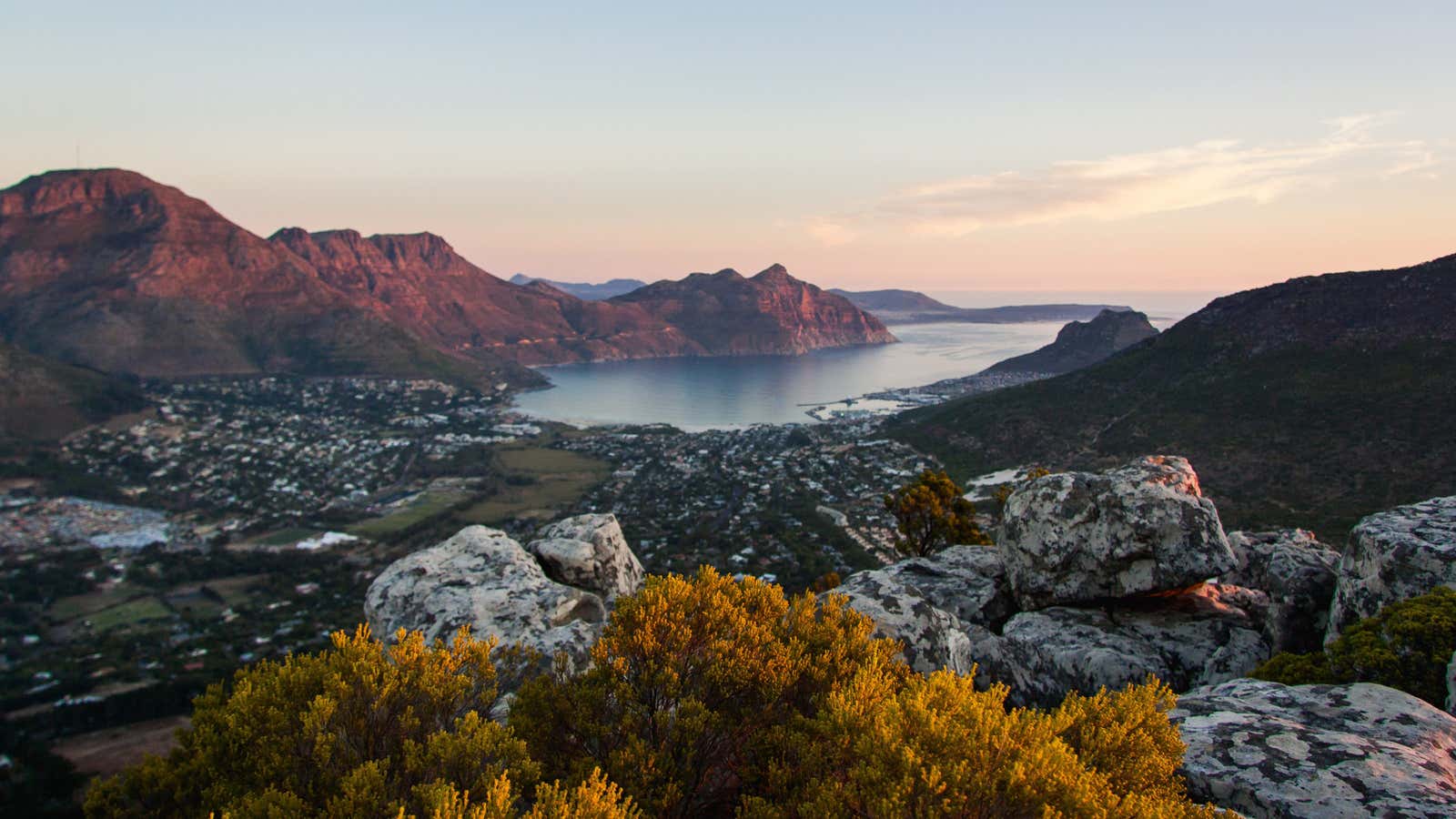It’s the height of summer in Cape Town, and the southwesternmost region of South Africa is gripped by a catastrophic water shortage. Unless the city adopts widespread rationing, the government says, the taps “will be turned off” on April 22, 2018, because there will be no more water to deliver.
This would make Cape Town the first major city in the world to run out of water, according to Anthony Turton, a professor at the Centre for Environmental Management at the University of the Free State in South Africa, who spoke to the New York Times. “It’s not an impending crisis—we’re deep, deep, deep in crisis.” The shortage is the result of a multi-year drought.
The city is asking residents to restrict their water use to 87 liters per person per day. That’s roughly the equivalent of a four-minute shower using a regular shower head, or an eight-minute shower using a low-flow shower head.
Cape Town’s water system isn’t built to withstand a multi-year drought (nor are any city’s water system), which are expected to occur “perhaps as rarely as once in a millennium,” according to a group of professors from the University of Cape Town.
This particular drought won’t last forever. But according to climate models, it is likely part of a trend for the Western Cape of South Africa, where climate change is expected to bring lower chances of wet years and higher chances of dry years as the century progresses, according to Piotr Wolski, a hydrologist with the Climate Systems Analysis Group. Water rationing may soon become the norm for the city of 4 million.
